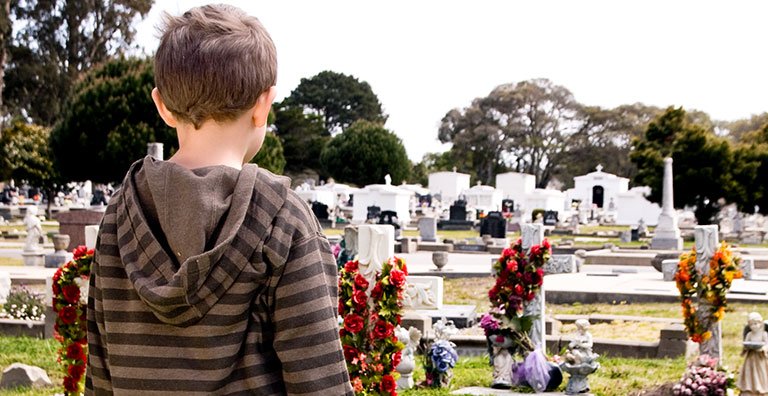This Mortal Life
This Mortal Life was a series of quarterly features and webinars in which we interviewed experts and applied Becker’s insights and current research to ongoing social issues. See below for former issues!
Dedication to a shared vision is exactly what The Church of Stop Shopping is about. For this December issue of the EBF newsletter, we wanted to focus on the connection between overconsumption and death-denial. To do so, we are featuring this special group from New York City.
Hello EBF friends and Becker fans. This year we celebrate a double anniversary: 50 years since Becker’s The Denial of Death, and 30 years of the Ernest Becker Foundation! This newsletter is dedicated to highlighting what has been accomplished in that time, and what’s in store for the future.
Over the past year we applied the lens of Becker’s work and insights to look at a variety of current events. Suffice it to say, 2022 was a year ripe for death anxiety. We witnessed the start of a war in Europe, major school shootings, the ongoing death rate from the COVID-19 pandemic, and the overturning of Roe v. Wade, to name just a few examples. Our webinar series mirrored these topics as we examined death anxiety’s role in these dynamics.
In response to gun violence, Americans differ drastically. Some are quick to blame guns, while others rush towards other explanations, fearing that the right to bear arms will one day be taken away entirely. Like most things in life, neither the issue nor its solution is simple or one-dimensional.
In this edition of our newsletter we highlight the reach of Becker’s ideas by featuring people from different backgrounds who were inspired by Becker. The life of each person interviewed has been deeply impacted by Becker and and they have used his ideas in their personal lives and careers. Becker has inspired everything from song lyrics, paintings, and books to conversations with dying loved ones. We hope these interviews offer a relaxing and interesting read for a (hopefully) sunny afternoon.
What does it mean to be “Death Positive”? This term may feel counterintuitive to many. Death Positivity is about accepting that we will die and making the most of our lives. As Western society has become more secular, many rituals surrounding death and dying have gone away, leading to a cultural “denial of death” as Becker discusses, or what others have called a death taboo.
Ernest Becker talked about religion being a type of “immortality project,” in the sense that life continues on after death. Some people interpret this as a criticism of religion, and while Becker was certainly critical of the abuse of religion, he was far from disparaging of religion itself.
Much of Ernest Becker’s synthesis has made its way to the scientific community, but his insights are equally important in the arts and humanities. Feeling that we can create something of value and meaning can help us accept our own mortality, and one of the ways we do that is through artistic expression.
We have dedicated this issue of the newsletter to conversation about climate. It’s a social issue to which many people have applied Becker’s synthesis. While many conversations about science do not elicit death anxiety, climate conversations have come to occupy a unique crossover between science, politics, and personal belief.
What does death anxiety have to do with discrimination? As it turns out, a lot. Becker said, “As we have learned, only scapegoats can relieve one of his own stark death fear: ‘I am threatened with death—let us kill plentifully’” (The Denial of Death).
Over 30 years of psychological research in the field of Terror Management Theory (TMT) have provided empirical evidence for the ways in which death anxiety influences our behavior, and how it can be used to manipulate us in political contexts.
In this feature, we interview three Native Americans who discuss the way death is viewed in their own culture, and how this relates to the way they approach their relationship to their own mortality.
What are the effects of constant conscious awareness of our mortality? In this issue we talk to researchers who study how mortality influences human behavior, to see what they had to say about the effects of heightened mortality awareness that we are experiencing thanks to COVID-19. We also examine examples from the news.
Film captures elements of the human experience with complexities ripe for Beckerian analysis. With gratitude to film buff and Terror Management Theory co-founder Jeff Greenberg (and his colleagues), this edition of our newsletter is dedicated to Beckerian film reviews.
As Becker noted, mental health is often not a question of delusions, but of too close a confrontation with the reality of existence. This is why Becker talks about mental health as a universal issue and intrinsic aspect of the human condition. Experts in the field of mental health discuss the challenge of confronting mortality head-on.
As Becker illustrated, death-denial often shapes our behavior in highly subtle and unconscious ways. Yet, when it comes to its most literal application—facing death in real time—we have ample evidence of the difficulties created by death denial. Nowhere is the manifestation of death denial more blatant than in the world of medical treatment.
In the following feature, you will read about some of Becker’s younger fans, from a teenager who faced her own mortality, to students who became passionate about Becker and Terror Management Theory. You will see the ways in which Becker’s ideas resonate for each individual help shape their understanding of the world.
As with most fears, “fear of the other” has fear of death at its base. Not only does the creation of stigmatized others create injustice and power imbalances, it is a way for humans to deny their own vulnerability. Experts discuss the relevance of fear of death and the process of othering in context of criminal justice.
Death anxiety and climate change sit uncomfortably side-by-side. We have marred the Earth, and as Becker cautioned, our fear of death has played a role in this. In this newsletter, the EBF will seek to address the relationship between climate change and death denial, and how this can inform our understanding of humanity’s contributions to environmental destruction.
Our fraught relationship with mortality can help us explain why we don’t like to talk about periods or see women breastfeed in public, why women internalize the male gaze, why society objectifies women, and more. Despite Becker’s problematic language, his extraordinary insight on human social behavior is a powerful tool we can use to inform modern liberation struggles.
During this 2016 campaign season, the Ernest Becker Foundation invites you to join us in examining the underlying messages in the images, words, and sounds of political advertising, specifically those messages that provoke our subconscious fear of death.
Experts within the Ernest Becker Foundation community who come from different religious perspectives have shared their thoughts with us on how Becker helps people understand their religion, and how their religion helps us understand Becker. Namely, how is their religion compatible with Becker’s synthesis and how does it provide its adherents “victorious, yet non-destructive” paths through life?






















